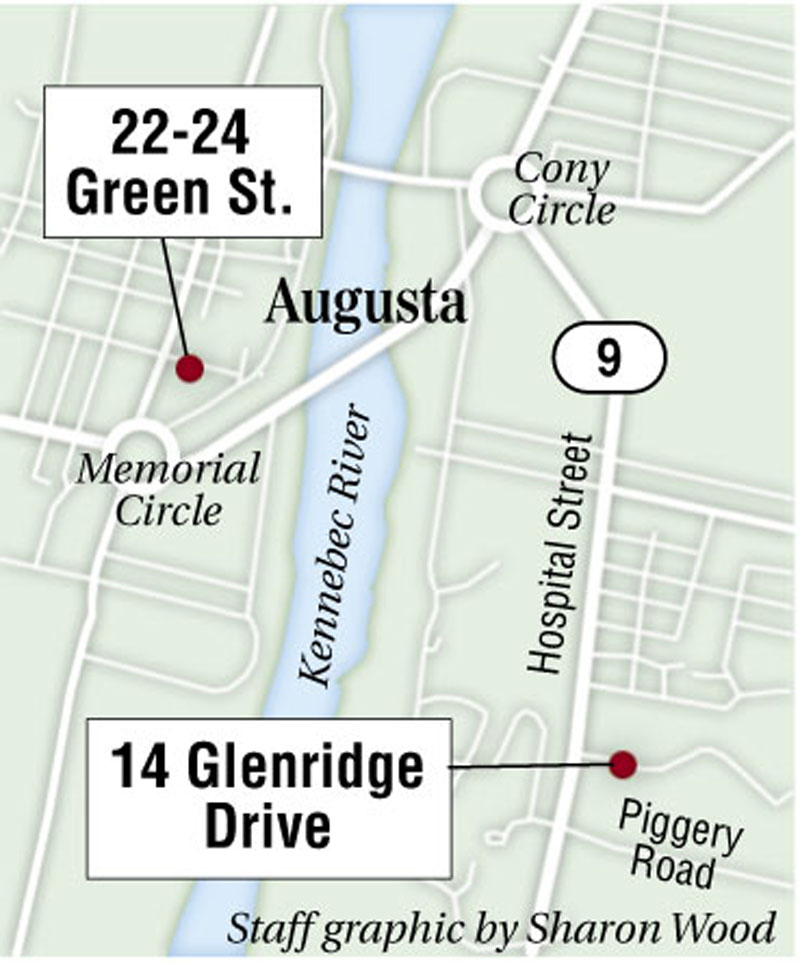 AUGUSTA — City councilors spent nearly two hours Thursday grilling officials about a state plan to move patients who have committed criminal acts off state property.
AUGUSTA — City councilors spent nearly two hours Thursday grilling officials about a state plan to move patients who have committed criminal acts off state property.
“These are not innocents,” said Councilor Patrick Paradis. “These are people who have shown they can be incredibly violent and we have a right to protect ourselves.”
State officials recently announced that three group homes on the grounds of the former Augusta Mental Health Institute are slated to close, meaning 16 residents who live in the home will be moved into group homes around Augusta, including 22-24 Green St. and 14 Glenridge Drive. The forensic patients — patients who have been determined in court to be not criminally responsible for the crime because of mental defect — have committed crimes ranging from misdemeanors to murder.
The patients affected by the move have been granted modified release status by a judge, making them eligible to live outside Riverview Psychiatric Center’s main hospital.
Riverview Superintendent Mary Louise McEwen told councilors Thursday the transition is in response to a 2010 ruling that patients living in the group homes on the old AMHI campus would no longer be eligible to receive MaineCare, the state’s version of Medicaid, because the patients are living on state land. The decision meant the patients’ care would be totally subsidized by the state, McEwen said.
But the new location is not an indication of a different level of supervision, McEwen said. Motivational Services, the nonprofit agency that has provided housing services at AMHI will continue to operate the programs at Green Street and Glenridge Drive. The Green Street home has housed forensic patients for more than a decade, said Jeff Thompson of Motivational Services. The Glenridge Drive home is just 200 yards away from the group home on AMHI’s campus, Thompson said.
Councilors have said they are concerned about the Glenridge Drive home’s proximity to a nursing home and daycare center, but Thompson said the home operated for a number of years next to a daycare center on the grounds of the former AMHI.
Thompson said he expects the move to have no impact on supervision levels or the safety of the community or patients.
“They’re not new to us,” he said. “They’ve been with us because we oversee the houses on grounds.”
Councilors asked a broad spectrum of questions, ranging from funding to policies governing patient movement in the community.
McEwen said there are 33 clients living in Augusta who have been judged not criminally responsible for their crimes. Those clients live in a variety of settings, from a group home to their own apartments. The patients who move into the group homes on Green Street and Glenridge Drive will continue to be supervised 24 hours a day, 7 days a week, McEwen said.
“There really is no change to what we’ve been doing for years,” she said.
Augusta Police Chief Robert Gregoire said the state’s Capitol Police has been primarily responsible over the past couple of years for answering calls at the group homes Motivational Services oversees for Riverview.
But even before the change, when the Augusta Police Department was the primary responder, complaints at the group homes were infrequent, Gregoire said. He said police are more likely to respond to Riverview’s main hospital to help deal with a patient in crisis.
McEwen said staff at the group homes know the clients and are trained to detect subtle differences in behavior.
“People are not going to snap overnight,” she said. “We’re going to catch it.”
Unlike the hospital, however, some patients at the group homes will be allowed to leave and walk around the community, Paradis said. He helped craft legislation in the 1980’s creating stricter guidelines for releasing forensic patients. That legislation, developed in response to teenager Sharon Taylor’s 1985 murder by an AMHI patient, has been watered down since, Paradis said. The state’s goal is now to return patients to the community, he said. The city’s goal is to protect its residents. Closing the group homes at AMHI makes that goal more challenging, Paradis said.
“There can be patients walking around Augusta that, given the right circumstances, have shown they can be very violent,” Paradis said.
Councilor Darek Grant said he was offended that councilors had to read of the state’s decision in the Kennebec Journal. He asked about policies that are in place to notify neighborhoods about patients moving into their community.
“If a murderer is moving into the Glenridge area, I’d like to think the neighbors would be notified,” Grant said.
While police are notified of patient movements, McEwen said information released to the general public would be governed by laws designed to protect patient rights.
McEwen said a communications breakdown led to the failure to notify the city about plans to move patients to Green Street and Glenridge Drive.
“It was my understanding that communications were occurring with the city,” she said. “The fact that didn’t happen, I apologize.”
Craig Crosby–621-5642
ccrosby@centralmaine.com
Copy the Story LinkSend questions/comments to the editors.




Success. Please wait for the page to reload. If the page does not reload within 5 seconds, please refresh the page.
Enter your email and password to access comments.
Hi, to comment on stories you must . This profile is in addition to your subscription and website login.
Already have a commenting profile? .
Invalid username/password.
Please check your email to confirm and complete your registration.
Only subscribers are eligible to post comments. Please subscribe or login first for digital access. Here’s why.
Use the form below to reset your password. When you've submitted your account email, we will send an email with a reset code.